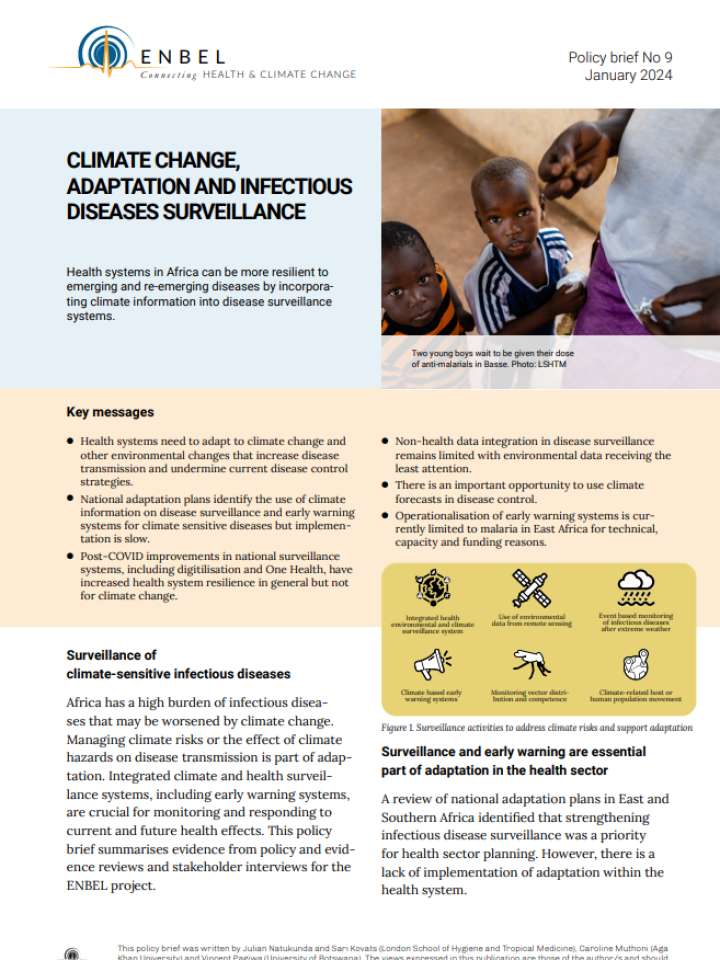Climate change, adaptation and infectious diseases surveillance
This policy brief summarises evidence from policy and evidence reviews and stakeholder interviews for the ENBEL project. Africa has a high burden of infectious diseases that may be worsened by climate change. Managing climate risks or the effect of climate hazards on disease transmission is part of adaptation. Integrated climate and health surveillance systems, including early warning systems, are crucial for monitoring and responding to current and future health effects.
Key findings from the publication include:
- Provincial (local) early warning systems (EWS) currently contributed to malaria control in East Africa. Despite the potential for the use of climate data for early warning at various time scales (daily to seasonal), there remain technical, capacity and funding barriers to implementation.
- Veillance for climate-sensitive water-borne diseases is less of a priority and capacity is more limited. However, approaches for the control of water-related diseases are different and there has been progress in the development of climate resilient water, sanitation and hygiene (WASH).
- Environmental data are rarely integrated into surveillance systems. One Health coordination structures are taking shape and promoting the collection and use of integrated data from disease, animals, and the environment but currently not sufficient to address climate risks.
Explore further
